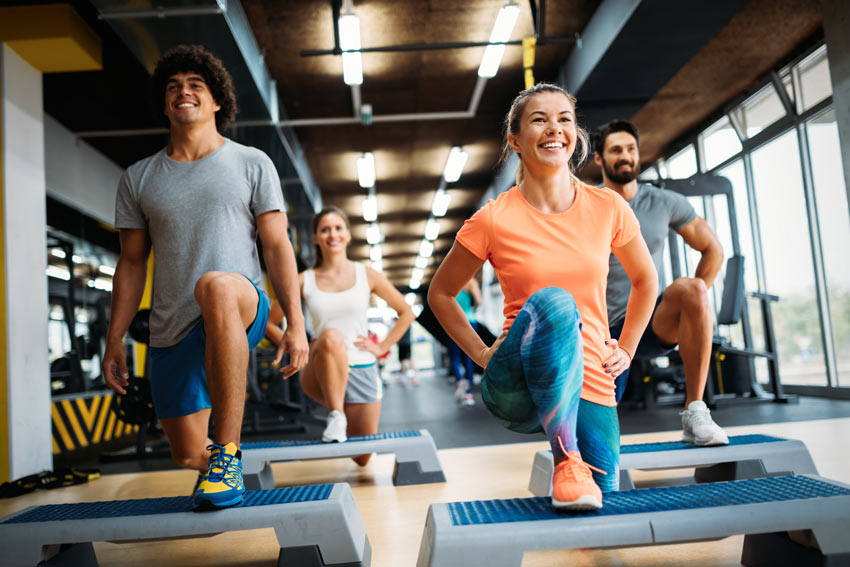Cleaner Living
Sobriety brings with it a cleaner way of living. When someone is under the influence of substances, their decisions are shrouded by that substance. Their focus is on the next fix, the next high, the next drink – what their mind and body are craving – not on what their body actually needs.
Substance use disorder treatment at St. Gregory Recovery Center takes the entirety of the person into account. Body, mind, and spirit all need healing. We help our clients learn how to make healthy choices for every aspect of their lives, including relationships, habits, food, and activities.
Research shows a number of correlations between physical fitness and continued sobriety. In addition to contributing to a healthy body, physical activity has emotional and mental benefits for anyone in recovery.
Positive Peer Pressure
When we think of the term “peer pressure” in regards to substance use, we probably think of friends pressuring friends to use alcohol or drugs. However, peer pressure can also have a positive effect when friends encourage friends to live more healthfully.
Finding camaraderie among others with similar goals, similar challenges, and similar activities creates a support network. When peers support each other in a positive way – with challenging, uplifting, competitive activities, etc. – they push each other to reach their best selves.
A positive support system of like-minded individuals in recovery will help hold you accountable for your choices and actions. For many people in treatment for substance use, their only friends are connected to them by the substances. Going back to those friends is dangerous to newfound sobriety. Finding a community of people who are working toward similar positive goals is an effective way of growing that support system.
Two Birds, One Stone
For those in recovery, physical fitness has a variety of benefits, from weight management and strength conditioning to self-esteem and healthy habits.
When your self esteem is low, substances can make you part of a crowd, bolster your confidence, and even give a false feeling of happiness by controlling/mimicking the serotonin and dopamine your body uses to regulate emotions. Physical activity, on the other hand, helps the body relearn how to manage its hormone levels. Working toward fitness goals (and achieving them) gives a sense of pride and accomplishment that can eclipse any substance-induced high.
Working with a community of peers toward fitness goals helps hold you accountable. You will want to put your best self forward to not let them down. Regardless of whether they are aware of the state of your recovery, they want you to be the best you can be – body, mind, and spirit.
Some gyms and trainers cater to or work exclusively with people in recovery from substance use. There are a few of these in the larger metro areas of the Midwest, with the possibility for expansion as the benefits of exercise programs geared specifically to people in recovery become more widely-known. Sources of inspiration and encouragement here in the Midwest include:
- Satellite locations of The Phoenix, a nation-wide network of non-profit gyms that work exclusively with people recovering from substance use disorders.
- Fit Sobriety, a Christian gym in the Twin Cities metro area that focuses on sober living through fitness and focus.
- Country music artist (and veteran) Nick Rucker, who has spoken out about his recovery journey from alcohol abuse and how getting into CrossFit has helped him focus on his sobriety.
Many groups have online forums, social media pages, and other ways to connect with people in recovery who are working toward similar goals. Some of them even encourage friendly competition among group members.
Healthy Choices and Alternatives Start Somewhere
Finding positive, healthy alternatives to deal with cravings and stressful situations that would have previously led you to dive headfirst into your substance of choice is paramount to navigating sober living. Like any good domino effect, one choice leads to another, and so on, until every piece falls into place.
Choosing to exercise regularly leads to the body feeling and looking better. This, coupled with the positive peer pressure from others following the same fitness regimen, will inevitably lead to healthy choices in nutrition based on recommendations by peers. Healthy nutrition choices help the body heal and recover from not only physical activity but also from past substance use, making the body feel even more healthy – and producing more of those happiness hormones that keep us emotionally balanced.
Every choice we make has a ripple effect that can change how we feel in the future. Every choice we made in the past, while some might have been painful or damaging, does not dictate who we will be tomorrow. Regardless of the poor health choices made, healthy choices in the present and future will create harmony and wellbeing.











